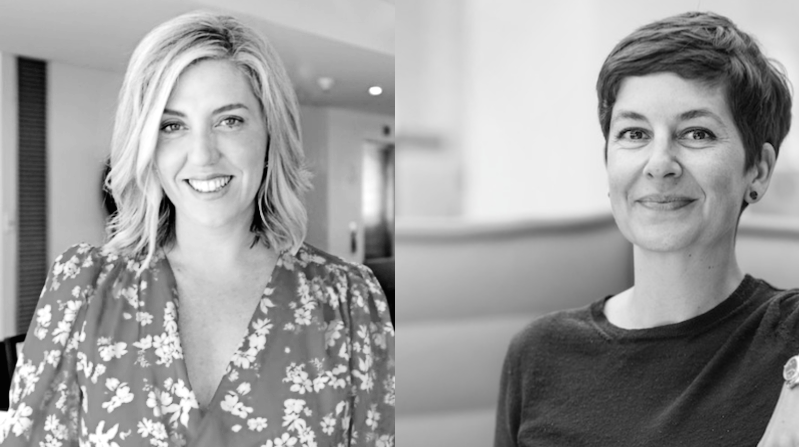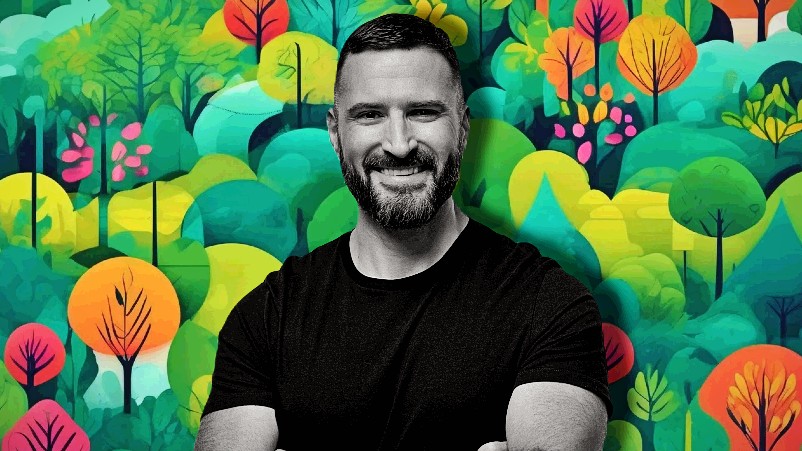Publicis ESG unit boss: Sustainability the next wave of business transformation but ‘carbon tunnel vision’ risks offset gaming, greenwash, consumer fatigue

Transform or die: Skye Lambley and Kathleen Enright, local and global leads at Publicis-owned Salterbaxter.
Publicis-owned Salterbaxter is betting that sustainability transformation will be the next wave of business transformation as brands and publishers grapple with government mandates locally and globally. It's working with the likes of P&G, H&M and Unilever globally and sees rich seams to mine locally. But the firm warns that a focus on carbon alone – as brands and media holding companies position to weight advertising spend based on emissions – risks exacerbating an already dubious carbon offsetting approach that rival holdcos agree is "an accounting game".
What you need to know:
- Publicis-owned Salterbaxter warns brand owners will fail without making sustainability core to corporate strategy.
- Add-ons won’t cut it and consumers don’t care about small, piecemeal brand approaches, leaving marketers sold short.
- Focus on carbon over broader sustainability – i.e. water, plastics, societal good – risks backfiring and fuelling rush for offsets over action.
- Global MD Kathleen Enright says strategic shifts by likes of P&G and Unilever are a sign that big consumer brand owners are recognising the scale of the challenge ahead.
- Consultancy launches in Australia eyeing rich transformation seams while driving local sustainability strategies for global Publicis client brands.
We never measure cost reduction, because I think that's where the whole sustainability world used to be. The business value is in just staying in business. The real return for our strategies will be ensuring that Nestlé is front of the line to get to the materials and the resources they need.
Sustainability rush
Salterbaxter set up shop in Australia last month, led locally by Skye Lambley. It joins a growing throng of consultancies touting sustainability expertise.
But UK-based global MD Kathleen Enright thinks both consultancies and transformation strategies will fail if they view sustainability “just from an issues perspective”. She thinks the winners will be those that work out “how does your sustainability strategy become your business strategy and vice versa; how does one deliver the other?”
Without that approach, gains will fail to materialise: “Genuine business returns – growth and investor backing – only come when you’ve got sustainability strategies baked into the business”.
Marketing wrong-footed
Marketing departments, usually tasked with helping to find more customers and sell more stuff, are struggling to understand their role in sustainability and deliver meaningful results. Enright said that is unsurprising.
“Marketers across different categories have run their own purpose campaigns. They have done sustainability comms at a brand level on issues – and they've done it properly – they've tried to drive the right behaviour change with their comms. The challenge is the issues that they're talking about are really, really uninteresting to consumers, and that's because the corporate sustainability strategy is not doing the heavy lift.”
Instead, said Enright, companies must craft a strategy that “does the heavy lift on carbon, packaging and water footprint and does all of that in a way that is inspiring and everyone can understand.”
With the broader strategy in place, marketers have a corporate story to articulate. “Then they can actually do something interesting, rather than trying to engage toothpaste customers on plastic-free packaging. That is what is missing – and that is where marketers are coming unstuck.”
Enright cites work with Procter & Gamble as a counterpoint.
“We did P&G's Ambition 2030 to make responsible consumption possible with a huge internal narrative around innovation and an internal call to action around ‘What If?’ and ‘Project Possible’. There's really clear commitments within that and we've seen a lot more innovation and a lot more brand communication coming out of P&G, because the corporate strategy does the heavy lift and is accessible to marketers.”
P&G, Unilever shifting stance
P&G has subsequently flipped its mission statement. It now promises to be ‘a force for growth to be a force for good’. Previously it was ‘a force for good to be a force for growth’. Chief Brand Officer Marc Pritchard said at Cannes that shift is because brands and their owners need to concentrate on financial growth in order to use profit to then fund societal and environmental good.
He cited washing powder brand Tide as an example of sustainability with practicality baked-in.
“People want clean clothes and they want to be environmentally conscious. We designed our formulas to clean in cold water. When they clean in cold water that actually reduces the energy emissions by 80 per cent, because it all comes from heating the water. It takes carbon out of the atmosphere actually saves you enough a month so that it pays for your wash,” said Pritchard.
“That is a force for growth and a force for good. Our job is to be able to help people understand that linkage – and if we do that then people can get motivated.”
Enright suggested P&G's shift is a sign that big consumer brand owners are recognising the scale of the challenge ahead.
“We're going to have to see a lot more businesses trying and testing – and it is starting to happen. We've got P&G being much more honest about their investment mechanisms and how they're driving change. We've got Unilever changing tack and saying they're moving away from consumer behaviour change because they need to operate more structural change. Businesses are trying stuff and being more honest about what has and hasn’t worked. But we need a lot more of that, because nobody's cracked how we're going to deliver the scale of change needed for 2030.”
Better questions, answers
Locally, Enright said marketers should be asking different questions of consumers – or “citizens” – to inform sustainability strategies. Consumers, she said, should be brought into “the materiality process”, which essentially maps out perceptions of the most pressing material issues to a business.
To date, these have been conducted internally and then externally with business supply chains, with little or no consumer engagement. Enright thinks that must change – and marketers can both drive that shift and gain sharper insight.
“The materiality process is an exercise that is very often the basis of boardroom discussions and the beginnings of a strategy. So understanding things like you think packaging is your biggest issue, when actually, it's your water footprint in your supply chain,” per Enright.
“Traditionally, consumers aren't involved in that process, but increasingly we're involving them because there needs to be a different way of asking citizens questions.
“A lot of marketing surveys ask people the questions in a way that you expect the answer and then you always get back the same responses, ‘I'm doing my bit and I'm not going to pay more’. Whereas bringing citizens into materiality is an opportunity to ask questions differently: What are you worried about for your future? What issues do you think your children will have to face, and how hard are you prepared to work to resolve them now? Those are the types of questions that we're bringing in,” said Enright, which also brings marketers closer to customers.
Australia: Mining rich seams
Enright thinks Australia will prove rich turf for Publicis’ sustainability unit in adapting global client strategies built for the likes of P&G, Nestle and H&M and working directly with local firms, with mining and "extractive" business es representing “huge opportunity”.
But she warns brands, publishers and the media supply chain to focus beyond carbon or risk an increase in greenwash – and to think about sustainability as a means of maintaining a licence to operate versus an opportunity to cut cost.
“We never measure cost reduction, because I think that's where the whole sustainability world used to be. The business value is in just staying in business. The real return for our strategies will be ensuring that Nestlé is front of the line to get to the materials and the resources they need. But what we're starting to see with P&G is that innovation costs are coming down – because suppliers are coming to them with their innovations because they want to work with them,” said Enright.
“So we're tracking the progress of our clients against things like access to primary materials, cost stability for primary materials and innovation costs coming down.”
Carbon tunnel vision
The marketing and media industry is pushing hard to develop carbon metrics and supply chain analysis tools in a bid to decarbonise, with Salesforce, for example recently launching Net Zero Cloud to sit adjacent to its marketing suite. While well intentioned, Enright thinks a “narrow view” on net zero could backfire. “I think a lot of these tools are really just going to prompt offsets and reporting lines.”
She thinks marketers might be better off getting a deeper understanding of core sustainability issues to drive genuine change – and stand a chance of having more meaningful dialogue and reaction from consumers.
“There's consumer fatigue with ‘small actions, big difference’ and we’re seeing this globally – that whole tired narrative that we’ve been hearing since the late nineties. Actually, we haven't seen a big difference and what we're seeing is total misinformation,” said Enright.
“I think marketers have a brilliant role to play. But I think there's massive upskilling needed across the board. If every marketer went into next year asking their senior management to be trained on sustainability and a holistic systems view … we would see amazing things happening.”
But for now, “I see a massive rush toward carbon tunnel vision.”








